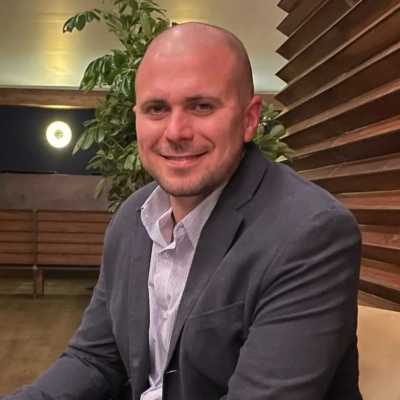Career Advice for Job Seekers
How to turn a part-time, seasonal job into a full-time, permanent science or engineering career
Career experts share practical strategies for transforming temporary positions into lasting careers in science and engineering fields. The path from seasonal employment to permanent roles requires strategic skill development, relationship building, and demonstrating value beyond basic job requirements. By mastering both technical expertise and essential soft skills, seasonal workers can position themselves as indispensable team members worthy of long-term investment.
- Focus on Data Quality Not Just Collection
- Notice and Improve Workplace Processes
- Document Core Operational Flaws
- Get Certified in High-Demand Team Skills
- Automate Repetitive Tasks With Simple Scripts
- Show Curiosity About the Science Behind Tasks
- Transform Each Project into Applied Learning
- Build Relationships Beyond Your Direct Supervisor
- Master Complex Systems Everyone Else Avoids
- Create Scientific Documentation of Your Work
- Prove Technical Value Through Project Excellence
- Build Trust Through Emotional Intelligence
- Develop Soft Skills That Showcase Leadership
- Ask Your Manager for a Career Plan
- Document Processes to Help the Team
- Understand How Your Role Affects Others
- Demonstrate Adaptability Through Continuous Learning
- Make Yourself Useful Beyond Job Requirements
Focus on Data Quality Not Just Collection
Treat every data task as an opportunity to demonstrate analytical rigor, not just task completion. After 16 years working with measurement data, I’ve watched seasonal employees turn temporary roles into careers by going beyond collecting data to questioning its quality and validity. When you’re asked to run tests or gather measurements, don’t just record numbers – document anomalies you notice, flag inconsistencies, and propose better collection methods.
Here’s my specific tip: create a simple data quality report for your project that shows you understand the difference between having data and having reliable data. Document sampling rates, identify potential sources of error, note when conditions changed that might affect results. This demonstrates you think like a data professional who understands measurement uncertainty and validity, not just someone who can follow procedures. Managers remember seasonal employees who caught data problems before they became expensive mistakes, and that mindset is exactly what converts temporary positions into permanent data engineering or analyst roles.

Notice and Improve Workplace Processes
Even if you’re only in a part-time or seasonal role, there’s a lot you can learn by just paying attention to how things get done. At Elcon Technologies, for example, we’ve seen team members helping with assembly or testing spot small ways to make a process run smoother, like organizing tools more efficiently or tweaking a testing step. One person shared their idea with their supervisor and even helped implement it on a small scale. That initiative didn’t go unnoticed…it showed curiosity, problem-solving, and a willingness to step up. Little by little, those contributions can open the door to a full-time role in science or engineering.
Document Core Operational Flaws
The challenge of turning a “part-time, seasonal job” into a full-time career in any high-stakes field like engineering is the same: you must prove you are solving problems that are essential, complex, and expensive for the business.
My specific tip is to isolate and document the core operational flaw. Stop performing the routine tasks; start treating the daily work as a continuous failure analysis project. Identify the single biggest, most complex point of failure in your operation that relies on an engineering or technical fix.
For us, that flaw is often the misidentification of a complex OEM Cummins part, like a variable geometry turbocharger for an X15 diesel engine. The part-timer should spend their non-billable time documenting the top three reasons why that error occurs and proposing a simple, low-cost fix—a new barcode system, a clearer label, a better photo for the website.
This proves that the employee understands the high-risk reality of the trade. They move from being a seasonal body to a risk-mitigation engineer. You don’t ask for a permanent job; you make the business dependent on your operational insights. The ultimate lesson is: You secure your career by solving the expensive, repeatable technical failures that management is too busy to fix.

Get Certified in High-Demand Team Skills
Want to turn your seasonal engineering gig into a full-time job? Get certified in something your team actually needs during the off-season. I watched Mark get his boiler certification, and when season hit, everyone was asking for him. They had to hire him full-time after that. Figure out what makes your manager’s head spin, then go learn that thing.

Automate Repetitive Tasks With Simple Scripts
Want to land a permanent science or engineering job? Find a task you keep doing and write a simple script to automate it. When I was at a SaaS company, a little program I made saved the team hours each week. Suddenly, my manager saw me as the person who found and fixed the annoying problems, not just someone who did their assigned work. That’s how you get noticed.

Show Curiosity About the Science Behind Tasks
When I started hiring part-time technicians, the ones who stood out were those who treated every shift like a learning opportunity. My advice to anyone hoping to turn a seasonal science-related job into a full-time career is to become curious about the “why” behind every task. In our field, that means asking questions about moisture testing, air sampling, and safety protocols instead of just following the checklist. Those who sought to understand the science behind remediation often became full-time employees because they showed genuine engagement.
The key is to act like a student of the craft. Learn the reasoning behind procedures, offer to help with small research or testing tasks, and show initiative. Curiosity often opens the door to permanence.

Transform Each Project into Applied Learning
I started in construction before moving into design. The jump happened because I treated every project like a lesson in applied science. If you’re in a seasonal role, learn how materials behave, how loads transfer, and why safety standards exist. Then share what you notice, which shows ownership. Managers remember people who think beyond their tasks. Build small prototypes, sketch ideas, or ask to shadow an engineer. That initiative often turns ‘temporary’ into ‘indispensable.’ Turn each task into a test of how the system works. That’s how careers begin.
Build Relationships Beyond Your Direct Supervisor
As a civil engineer who worked on major infrastructure projects before founding my remodeling company, the advice I give is this: treat every temporary project like a permanent audition. Deliver work that makes supervisors want to create a position for you if one doesn’t exist. In engineering, I’ve seen students land full-time offers not because they were technically brilliant, but because they solved problems without being asked, documented their work clearly, and made their managers’ jobs easier. When you’re in a seasonal role, you’re being evaluated on reliability and initiative more than credentials. Show up consistently, ask smart questions, and volunteer for the unglamorous tasks nobody else wants.
The other move that works is building relationships beyond your immediate supervisor. Talk to senior engineers, attend project meetings even if you’re not required to, and understand how your work fits into larger objectives. When budget opens up or someone leaves, you want multiple people advocating for you internally. I’ve hired former interns and seasonal workers into permanent roles specifically because they demonstrated they understood the business, not just their narrow job description. Engineering careers aren’t built on technical skills alone – they’re built on proving you can be trusted with increasing responsibility.
Master Complex Systems Everyone Else Avoids
Use your downtime to learn the internal systems that everyone else avoids. Whether it’s data logging software, calibration tools, or compliance documentation, mastering the tedious but crucial tasks makes you indispensable.
Companies in science and engineering quietly keep full-timers who make complex work simpler, even when budgets are tight. Ask for small mentorship sessions from the system experts; it shows initiative and a willingness to learn beyond your job title. Over time, your technical curiosity builds a reputation that outlasts your temporary contract and opens doors to long-term employment.

Create Scientific Documentation of Your Work
Treat every seasonal project like a research paper with your name on it. Document what you did, the methods used, and any data that improved performance or solved problems.
Managers remember employees who bring scientific structure to temporary roles. This turns your short-term contribution into tangible proof of capability that can justify a full-time position when funding opens up.
Keep copies of your reports and results because they can double as portfolio material for future roles. If you present your findings during a team meeting, it signals leadership qualities and an understanding of long-term project impact.

Prove Technical Value Through Project Excellence
Treat every project in your seasonal role as a chance to prove your technical expertise and problem-solving skills. For example, if you’re working with interactive multitouch systems, take the initiative to optimize a process or suggest an innovative solution. Document these achievements and proactively communicate how your contributions align with the company’s long-term goals. This highlights your value and positions you as a critical asset for a permanent role.

Build Trust Through Emotional Intelligence
Seasonal workers who want to succeed need to build emotional intelligence skills in addition to their technical competencies. Every science or engineering project requires human involvement because it needs mentors, peers, and stakeholders to work on the project. Learn to read the room, stay open to feedback, and practice active listening. Your technical skills will help you get noticed, but your ability to connect with people will create trust with others. Trust serves as the essential foundation which determines how employees will progress in their careers.
Learn how to communicate ideas clearly, accept feedback, and show gratitude when others help you. These human factors often determine who gets invited to stay. Your colleagues will back your permanent team position because you establish teamwork environments which lead to better productivity. Your professional reputation will develop through daily relationships which stem from regular small interactions. Your ability to work well with others will become your most valuable asset for long-term success.

Develop Soft Skills That Showcase Leadership
I’d tell anyone in a temporary science or engineering job to develop soft skills alongside technical ones. People fail to understand that staying calm during stressful times and maintaining organization while delivering messages effectively is a crucial matter. The selection of leaders depends on their possession of these specific characteristics. Show that you can handle responsibility without losing focus. Managers look for staff members who remain calm when dealing with complicated work situations.
Your reliability needs to be proven to others through your practice of arriving early and delivering complete documentation and direct results in all your interactions. Employers tend to promote part-time workers who demonstrate exceptional performance in their roles. Technical expertise can be trained; professionalism and consistency cannot. A solid reputation for dependability will follow you into any field. Your professional brand develops through delivering dependable work consistently throughout your career.

Ask Your Manager for a Career Plan
Just tell your manager you want a full-time job and ask what skills you need to get there. When I moved from scattered projects to a long-term one, I made a simple list of skills to master. Sitting down with my manager and HR turned a vague hope into an actual plan. It stopped being about wishing for a permanent spot and became about knowing exactly what I had to do to earn it.

Document Processes to Help the Team
Offer to train new people or write down how things actually work. I documented the sales process at SalesMVP Lab, which helped new hires and also showed I was willing to own stuff beyond my own tasks. Getting those docs right took some time, but afterward, team transitions were way smoother. Doing that kind of thing is what gets you noticed for a full-time role.

Understand How Your Role Affects Others
Develop cross-functional mastery instead of just focusing on your work. If you are in a lab role, learn how your data affects product development or quality. If you will be in the engineering support area, inquire how your information facilitates the decision-making process for design or production. Such curiosity makes you feel like a systems integrator, not just a task doer. When you understand the bigger picture, the company may consider giving you a permanent job.

Demonstrate Adaptability Through Continuous Learning
My biggest piece of advice is to consistently demonstrate adaptability. Technical fields continue to transform because their operational methods, technological systems, and methodological approaches undergo continuous evolution. The best employees demonstrate their ability to make fast changes while maintaining high standards of work quality. Every new assignment brings a chance to build your abilities in subjects which you have not studied before. The need to learn demonstrates both current strength and future growth potential.
Your ability to learn new tools and switch between tasks at high speed while keeping your work accurate will make you stand out from other temporary workers. Document your process of learning new systems and task optimization throughout your brief time at the organization. Managers want workers who learn faster than industry changes because their ability to adapt becomes their most important skill. Create a short document which demonstrates your developing adaptability abilities and their effects on team results. The review process converts your notes into evidence which shows your growth mindset development.

Make Yourself Useful Beyond Job Requirements
Get curious and make yourself useful beyond your job description. Ask smart questions, volunteer for side projects, and find a mentor who’ll vouch for you when opportunities pop up. In science and engineering, managers notice problem solvers, not clock punchers. The secret sauce? Show genuine interest in how things work, not just what your task is. Enthusiasm backed by initiative is basically career rocket fuel.

Related Articles
- How can an employee turn a part-time, seasonal job into a full-time, permanent manufacturing career? – College Recruiter
- How can an employee turn a part-time, seasonal job into a full-time, permanent legal career? – College Recruiter
- How can an employee turn a part-time, seasonal job into a full-time, permanent education career? – College Recruiter
New Job Postings
Advanced Search

